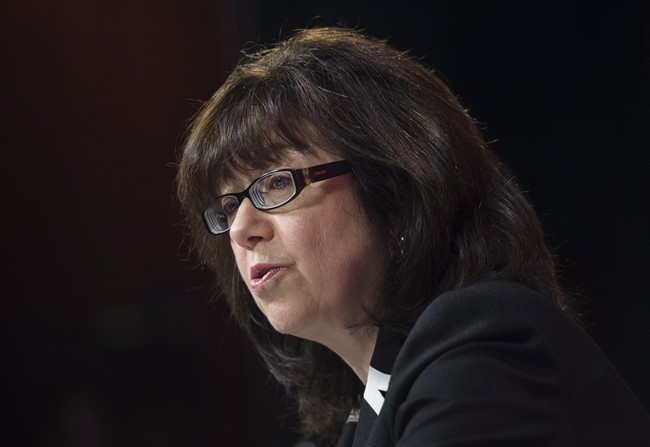TORONTO – The Progressive Conservatives have asked the Ontario Provincial Police to investigate millions in ineligible expenses – including scuba gear and raccoon traps – filed by nine power generators in the province.

Auditor general Bonnie Lysyk reported last week that the generators claimed up to $260 million in ineligible costs between 2006 and 2015, under a program designed to pay power generators for fuel, maintenance and operating costs when the system operator puts them on standby to supply energy.
The Independent Electricity System Operator says it’s closer to $200 million, and that $168 million has been repaid.
Progressive Conservative Todd Smith has now written to the OPP to ask them to investigate, saying the abuses were so egregious that a second look by law enforcement is prudent.
READ MORE: Auditor general finds Ontarians pay millions for ineligible power generator costs
“I have serious concerns about what appeared to be a broad and systemic abuse of the energy system and ultimately, the hard-earned money of ratepayers,” Smith wrote to Commissioner Vince Hawkes.
The OPP received the letter Monday morning, but a spokeswoman said it was too early to say what they will do.

Get breaking National news
Smith noted that his party previously asked a legislative committee to study the IESO’s accounting and record retention practices as well as contract management, following an earlier auditor general report on the accounting surrounding the Liberal government’s plan to cut hydro bills by 25 per cent. That request was denied by the Liberal-dominated committee.
- ‘Alarming trend’ of more international students claiming asylum: minister
- TD Bank moves to seize home of Russian-Canadian jailed for smuggling tech to Kremlin
- After controversial directive, Quebec now says anglophones have right to English health services
- Why B.C. election could serve as a ‘trial run’ for next federal campaign
“We thought about all of the different ways that we could try and provide some transparency here, but in spite of all of our efforts and trying to get the justice committee to look into it and being stonewalled by the Liberals at committee, this was really the only other alternative we had,” Smith said.
READ MORE: Ontario government obscuring true cost of hydro bill cuts: Auditor general
Energy Minister Glenn Thibeault said both he and the IESO take the matter seriously, which is why the IESO investigated, recouped $168 million of inappropriate costs and is changing the system.
“What we’re talking about here is an older program that has been adjusted to make sure that this won’t happen again and we are bringing forward market renewal, which is rebuilding the foundation to allow more flexibility and opportunities for people to be able to have a clearer understanding of what are eligible expenses,” he said.
Both the Tories and the NDP have also called on the IESO to release the names of the nine power generators. The IESO has said that rules around commercial sensitivity prevent it from publishing those names, though an executive said they could change those rules.
READ MORE: Ontario government to spend $5.5M advertising hydro bill cuts, documents show
One of the nine generators is Goreway Power Station in Brampton, Ont., which has repaid nearly all of the $100 million it was found to have “gamed” the system out of, but the names of the other eight generators have not been made public.
Generators claimed thousands of dollars a year for staff car washes, carpet cleaning, road repairs, landscaping, scuba gear and raccoon traps, “which have nothing to do with running power equipment on standby,” Lysyk wrote in her annual report last week. One generator claimed about $175,000 for coveralls and parkas over two years, she said.
The Ontario Energy Board found in 2014 that the standby program was relied on less than one per cent of the time to meet domestic demand, and has recommended repeatedly that it be scaled back to stop reimbursing generators for certain operating and maintenance costs. Doing so would save ratepayers $30 million a year, the regulator says.







Comments